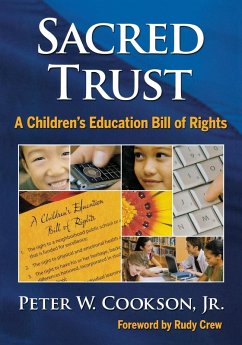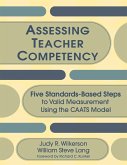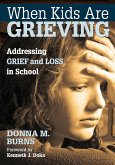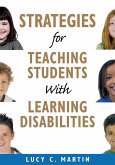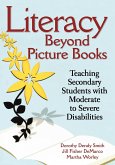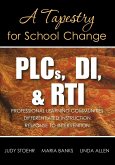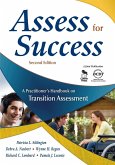- Broschiertes Buch
- Merkliste
- Auf die Merkliste
- Bewerten Bewerten
- Teilen
- Produkt teilen
- Produkterinnerung
- Produkterinnerung
All students have the right to an excellent education Peter Cookson boldly describes a proposed education bill of rights for American students, including ideas on how to restructure the United States Department of Education. The book asserts that all children have the right to: Attend a school that is funded for 21st-century excellence Develop individual learning styles to the optimal extent Have their heritages honored and incorporated into study Through vivid storytelling and relevant research, Cookson provides specific and innovative steps for creating a concrete action plan that will lead to just, equitable, and world-class schools.…mehr
Andere Kunden interessierten sich auch für
![Helping Children Grieve Through Sacred Actions and Images Helping Children Grieve Through Sacred Actions and Images]() Michelle RyanHelping Children Grieve Through Sacred Actions and Images17,99 €
Michelle RyanHelping Children Grieve Through Sacred Actions and Images17,99 €![Assessing Teacher Competency Assessing Teacher Competency]() Judy R. WilkersonAssessing Teacher Competency50,99 €
Judy R. WilkersonAssessing Teacher Competency50,99 €![When Kids Are Grieving When Kids Are Grieving]() Donna M. BurnsWhen Kids Are Grieving34,99 €
Donna M. BurnsWhen Kids Are Grieving34,99 €![Strategies for Teaching Students with Learning Disabilities Strategies for Teaching Students with Learning Disabilities]() Lucy C. MartinStrategies for Teaching Students with Learning Disabilities40,99 €
Lucy C. MartinStrategies for Teaching Students with Learning Disabilities40,99 €![Literacy Beyond Picture Books Literacy Beyond Picture Books]() Dorothy Dendy SmithLiteracy Beyond Picture Books43,99 €
Dorothy Dendy SmithLiteracy Beyond Picture Books43,99 €![PLCs, DI, & RTI PLCs, DI, & RTI]() Judy StoehrPLCs, DI, & RTI41,99 €
Judy StoehrPLCs, DI, & RTI41,99 €![Assess for Success Assess for Success]() Patricia L SitlingtonAssess for Success41,99 €
Patricia L SitlingtonAssess for Success41,99 €-
-
-
All students have the right to an excellent education Peter Cookson boldly describes a proposed education bill of rights for American students, including ideas on how to restructure the United States Department of Education. The book asserts that all children have the right to: Attend a school that is funded for 21st-century excellence Develop individual learning styles to the optimal extent Have their heritages honored and incorporated into study Through vivid storytelling and relevant research, Cookson provides specific and innovative steps for creating a concrete action plan that will lead to just, equitable, and world-class schools.
Hinweis: Dieser Artikel kann nur an eine deutsche Lieferadresse ausgeliefert werden.
Hinweis: Dieser Artikel kann nur an eine deutsche Lieferadresse ausgeliefert werden.
Produktdetails
- Produktdetails
- Verlag: Corwin
- Seitenzahl: 160
- Erscheinungstermin: 10. Mai 2011
- Englisch
- Abmessung: 254mm x 178mm x 9mm
- Gewicht: 315g
- ISBN-13: 9781412981163
- ISBN-10: 1412981166
- Artikelnr.: 32794113
- Herstellerkennzeichnung
- Libri GmbH
- Europaallee 1
- 36244 Bad Hersfeld
- gpsr@libri.de
- Verlag: Corwin
- Seitenzahl: 160
- Erscheinungstermin: 10. Mai 2011
- Englisch
- Abmessung: 254mm x 178mm x 9mm
- Gewicht: 315g
- ISBN-13: 9781412981163
- ISBN-10: 1412981166
- Artikelnr.: 32794113
- Herstellerkennzeichnung
- Libri GmbH
- Europaallee 1
- 36244 Bad Hersfeld
- gpsr@libri.de
Peter W. Cookson, Jr. is the founder of Ideas without Borders, a Washington DC-based educational consulting firm focusing on human rights and 21st century learning. A sociologist of education he has taught and held leadership positions at several leading colleges and universities including Teachers College, Columbia University. After working as a case worker in New York City, Cookson started his teaching career as a fifth grade social studies and English teacher in rural New England. He writes extensively on the topics of equality of educational opportunity, 21st century learning, and school choice. Some of his works include School Choice: The Struggle for the Soul of American Education (Yale University Press), Expect Miracles: Charter Schools and the Politics of Hope and Despair (Westview Press) and What Would Socrates Say? in Educational Leadership. He holds a doctorate in the sociology of education from New York University and a master's degree from Yale Divinity School, where he held the Katsuso Miho Scholarship in Peacemaking.
Foreword Acknowledgements About the Author Introduction: A Measure of Our Soul Chapter One: The Power of People and the Purpose of Public Education All Children Dream Educationally Experimenting on the Poor Madison was Right: A New Policy Framework Turning Dreams into Reality The Obtainable Utopia Book Study Questions Possible Action Steps Suggested Further Reading Chapter Two: The Right to a Safe, Healthy, World-Class Pubic School Right Number 1: The right to a neighborhood public school or a public school of choice that is funded for excellence The Great Unequalizer Getting to the Real Issues Money---Spent Wisely---Does Matter Reclaiming Horace
s Dream Book Study Questions Possible Action Steps Suggested Further Reading Right Number 2: The right to physical and emotional health and safety Do No Harm: The First Obligation Basic Justice Requires Basic Care Health and Social Health Book Study Questions Possible Action Steps Suggested Readings Chapter Three: The Cultural and Individual Rights of Students Right Number 3: The right to have his or her heritage, background, and religious differences honored, incorporated in study, and celebrated in the culture of the school Unity Within Diversity The Open Mind and the Open Society The Empathic Civilization The Classroom Is the World Book Study Questions Possible Action Steps Suggested Further Reading Right Number 4: The right to develop learning styles and strategies to the greatest extent possible Doubt and Its Virtues The Mismatch Between Research and Practice Maximizing Children
s Talent Through Individualization Inquiry as a Way of Life Book Study Questions Possible Action Steps Suggested Further Reading Chapter Four: The Right to High Quality Instruction and School Leadership Right Number 5: The right to an excellent and dedicated teacher Why Don
t We Ask the Teachers? Elevating Teaching Practical Idealism Works Book Study Questions Possible Action Steps Suggested Further Reading Right Number 6: The right to a school leader with vision and educational expertise Leadership for 21st-Century Schools National Educational Leadership A School Without Vision Is Lost Book Study Questions Possible Action Steps Suggested Further Reading Chapter Five: The Right to World-Class 21st-Century Curriculum and Technology Right Number 7: The right to a curriculum based on relevance, depth, and flexibility Boredom--The Lucky Two Percent Virtual Socrates Eradicating Boredom Book Study Questions Possible Action Steps Suggested Further Reading Right Number 8: The right of access to the most powerful educational technologies Learning in the Electronic Era Why a Right to 21st-Century Communication Technologies? Technology, Technopoly, and Cyber Sanity What Would Socrates Say? Book Study Questions Possible Action Steps Suggested Further Reading Chapter Six: The Right to Equality of Educational Opportunity Right Number 9: The right to fair, relevant, and learner-based evaluations In the Belly of the Beast Why a Right to Fair Evaluation? The Einstein Factor, the Picasso Possibility, and the Sanctity of Natural Genius Book Study Questions Possible Action Steps Suggested Further Reading Right Number 10: The right to complete high school The Tragic Consequences of Educational Neglect Why a Right to Graduate? What Would the Founders Say? Book Study Questions Possible Action Steps Suggested Further Reading Chapter Seven: The Right to Good Government 21st-Century Government and a "Sense of the People" A New Department of Education---A National "Seminary of Learning" Organizing for Learning The Dream Recaptured Book Study Questions Possible Action Steps Suggested Further Reading Resource 1: The Historic Issue of Equity and Excellence Resource 2: The Virginia Declaration of Rights Resource 3: Education and the Peace Dividend Resource 4: Principles of Multicultural Education References Index
s Dream Book Study Questions Possible Action Steps Suggested Further Reading Right Number 2: The right to physical and emotional health and safety Do No Harm: The First Obligation Basic Justice Requires Basic Care Health and Social Health Book Study Questions Possible Action Steps Suggested Readings Chapter Three: The Cultural and Individual Rights of Students Right Number 3: The right to have his or her heritage, background, and religious differences honored, incorporated in study, and celebrated in the culture of the school Unity Within Diversity The Open Mind and the Open Society The Empathic Civilization The Classroom Is the World Book Study Questions Possible Action Steps Suggested Further Reading Right Number 4: The right to develop learning styles and strategies to the greatest extent possible Doubt and Its Virtues The Mismatch Between Research and Practice Maximizing Children
s Talent Through Individualization Inquiry as a Way of Life Book Study Questions Possible Action Steps Suggested Further Reading Chapter Four: The Right to High Quality Instruction and School Leadership Right Number 5: The right to an excellent and dedicated teacher Why Don
t We Ask the Teachers? Elevating Teaching Practical Idealism Works Book Study Questions Possible Action Steps Suggested Further Reading Right Number 6: The right to a school leader with vision and educational expertise Leadership for 21st-Century Schools National Educational Leadership A School Without Vision Is Lost Book Study Questions Possible Action Steps Suggested Further Reading Chapter Five: The Right to World-Class 21st-Century Curriculum and Technology Right Number 7: The right to a curriculum based on relevance, depth, and flexibility Boredom--The Lucky Two Percent Virtual Socrates Eradicating Boredom Book Study Questions Possible Action Steps Suggested Further Reading Right Number 8: The right of access to the most powerful educational technologies Learning in the Electronic Era Why a Right to 21st-Century Communication Technologies? Technology, Technopoly, and Cyber Sanity What Would Socrates Say? Book Study Questions Possible Action Steps Suggested Further Reading Chapter Six: The Right to Equality of Educational Opportunity Right Number 9: The right to fair, relevant, and learner-based evaluations In the Belly of the Beast Why a Right to Fair Evaluation? The Einstein Factor, the Picasso Possibility, and the Sanctity of Natural Genius Book Study Questions Possible Action Steps Suggested Further Reading Right Number 10: The right to complete high school The Tragic Consequences of Educational Neglect Why a Right to Graduate? What Would the Founders Say? Book Study Questions Possible Action Steps Suggested Further Reading Chapter Seven: The Right to Good Government 21st-Century Government and a "Sense of the People" A New Department of Education---A National "Seminary of Learning" Organizing for Learning The Dream Recaptured Book Study Questions Possible Action Steps Suggested Further Reading Resource 1: The Historic Issue of Equity and Excellence Resource 2: The Virginia Declaration of Rights Resource 3: Education and the Peace Dividend Resource 4: Principles of Multicultural Education References Index
Foreword Acknowledgements About the Author Introduction: A Measure of Our Soul Chapter One: The Power of People and the Purpose of Public Education All Children Dream Educationally Experimenting on the Poor Madison was Right: A New Policy Framework Turning Dreams into Reality The Obtainable Utopia Book Study Questions Possible Action Steps Suggested Further Reading Chapter Two: The Right to a Safe, Healthy, World-Class Pubic School Right Number 1: The right to a neighborhood public school or a public school of choice that is funded for excellence The Great Unequalizer Getting to the Real Issues Money---Spent Wisely---Does Matter Reclaiming Horace
s Dream Book Study Questions Possible Action Steps Suggested Further Reading Right Number 2: The right to physical and emotional health and safety Do No Harm: The First Obligation Basic Justice Requires Basic Care Health and Social Health Book Study Questions Possible Action Steps Suggested Readings Chapter Three: The Cultural and Individual Rights of Students Right Number 3: The right to have his or her heritage, background, and religious differences honored, incorporated in study, and celebrated in the culture of the school Unity Within Diversity The Open Mind and the Open Society The Empathic Civilization The Classroom Is the World Book Study Questions Possible Action Steps Suggested Further Reading Right Number 4: The right to develop learning styles and strategies to the greatest extent possible Doubt and Its Virtues The Mismatch Between Research and Practice Maximizing Children
s Talent Through Individualization Inquiry as a Way of Life Book Study Questions Possible Action Steps Suggested Further Reading Chapter Four: The Right to High Quality Instruction and School Leadership Right Number 5: The right to an excellent and dedicated teacher Why Don
t We Ask the Teachers? Elevating Teaching Practical Idealism Works Book Study Questions Possible Action Steps Suggested Further Reading Right Number 6: The right to a school leader with vision and educational expertise Leadership for 21st-Century Schools National Educational Leadership A School Without Vision Is Lost Book Study Questions Possible Action Steps Suggested Further Reading Chapter Five: The Right to World-Class 21st-Century Curriculum and Technology Right Number 7: The right to a curriculum based on relevance, depth, and flexibility Boredom--The Lucky Two Percent Virtual Socrates Eradicating Boredom Book Study Questions Possible Action Steps Suggested Further Reading Right Number 8: The right of access to the most powerful educational technologies Learning in the Electronic Era Why a Right to 21st-Century Communication Technologies? Technology, Technopoly, and Cyber Sanity What Would Socrates Say? Book Study Questions Possible Action Steps Suggested Further Reading Chapter Six: The Right to Equality of Educational Opportunity Right Number 9: The right to fair, relevant, and learner-based evaluations In the Belly of the Beast Why a Right to Fair Evaluation? The Einstein Factor, the Picasso Possibility, and the Sanctity of Natural Genius Book Study Questions Possible Action Steps Suggested Further Reading Right Number 10: The right to complete high school The Tragic Consequences of Educational Neglect Why a Right to Graduate? What Would the Founders Say? Book Study Questions Possible Action Steps Suggested Further Reading Chapter Seven: The Right to Good Government 21st-Century Government and a "Sense of the People" A New Department of Education---A National "Seminary of Learning" Organizing for Learning The Dream Recaptured Book Study Questions Possible Action Steps Suggested Further Reading Resource 1: The Historic Issue of Equity and Excellence Resource 2: The Virginia Declaration of Rights Resource 3: Education and the Peace Dividend Resource 4: Principles of Multicultural Education References Index
s Dream Book Study Questions Possible Action Steps Suggested Further Reading Right Number 2: The right to physical and emotional health and safety Do No Harm: The First Obligation Basic Justice Requires Basic Care Health and Social Health Book Study Questions Possible Action Steps Suggested Readings Chapter Three: The Cultural and Individual Rights of Students Right Number 3: The right to have his or her heritage, background, and religious differences honored, incorporated in study, and celebrated in the culture of the school Unity Within Diversity The Open Mind and the Open Society The Empathic Civilization The Classroom Is the World Book Study Questions Possible Action Steps Suggested Further Reading Right Number 4: The right to develop learning styles and strategies to the greatest extent possible Doubt and Its Virtues The Mismatch Between Research and Practice Maximizing Children
s Talent Through Individualization Inquiry as a Way of Life Book Study Questions Possible Action Steps Suggested Further Reading Chapter Four: The Right to High Quality Instruction and School Leadership Right Number 5: The right to an excellent and dedicated teacher Why Don
t We Ask the Teachers? Elevating Teaching Practical Idealism Works Book Study Questions Possible Action Steps Suggested Further Reading Right Number 6: The right to a school leader with vision and educational expertise Leadership for 21st-Century Schools National Educational Leadership A School Without Vision Is Lost Book Study Questions Possible Action Steps Suggested Further Reading Chapter Five: The Right to World-Class 21st-Century Curriculum and Technology Right Number 7: The right to a curriculum based on relevance, depth, and flexibility Boredom--The Lucky Two Percent Virtual Socrates Eradicating Boredom Book Study Questions Possible Action Steps Suggested Further Reading Right Number 8: The right of access to the most powerful educational technologies Learning in the Electronic Era Why a Right to 21st-Century Communication Technologies? Technology, Technopoly, and Cyber Sanity What Would Socrates Say? Book Study Questions Possible Action Steps Suggested Further Reading Chapter Six: The Right to Equality of Educational Opportunity Right Number 9: The right to fair, relevant, and learner-based evaluations In the Belly of the Beast Why a Right to Fair Evaluation? The Einstein Factor, the Picasso Possibility, and the Sanctity of Natural Genius Book Study Questions Possible Action Steps Suggested Further Reading Right Number 10: The right to complete high school The Tragic Consequences of Educational Neglect Why a Right to Graduate? What Would the Founders Say? Book Study Questions Possible Action Steps Suggested Further Reading Chapter Seven: The Right to Good Government 21st-Century Government and a "Sense of the People" A New Department of Education---A National "Seminary of Learning" Organizing for Learning The Dream Recaptured Book Study Questions Possible Action Steps Suggested Further Reading Resource 1: The Historic Issue of Equity and Excellence Resource 2: The Virginia Declaration of Rights Resource 3: Education and the Peace Dividend Resource 4: Principles of Multicultural Education References Index

